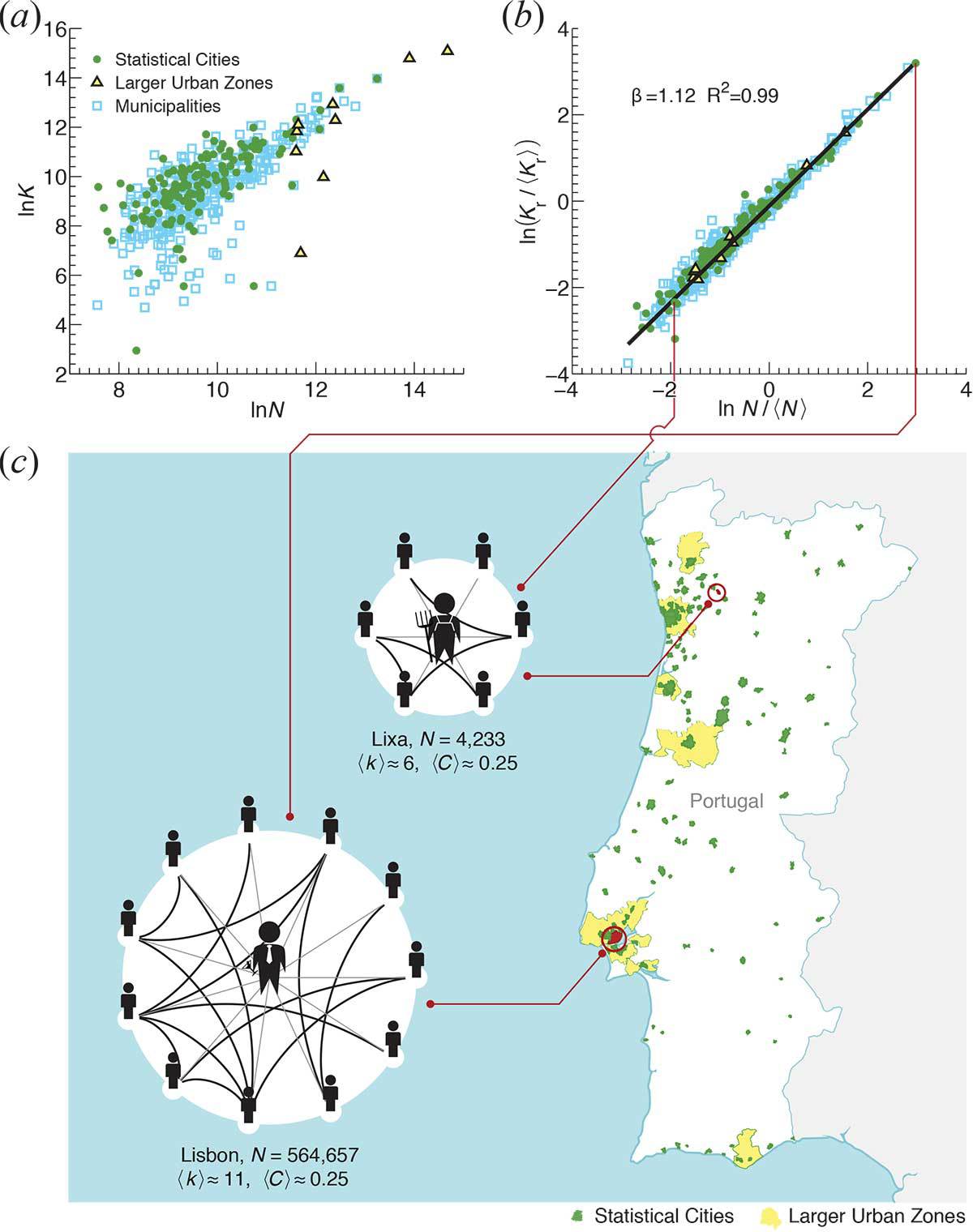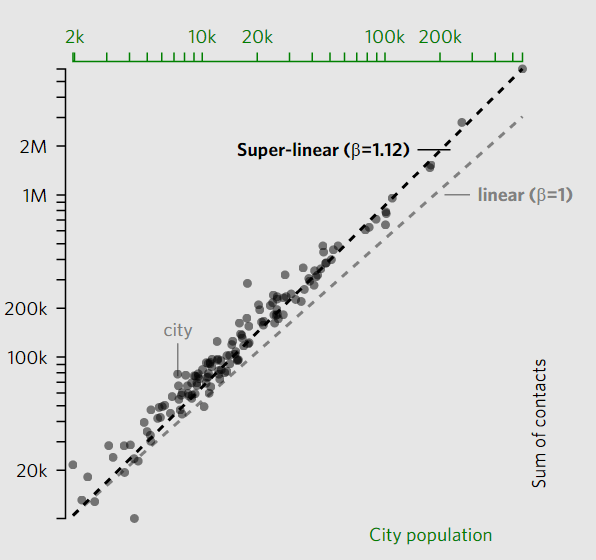Small “villages” inside big cities

A very interesting study was conducted by a group from the USA, Germany, Great Britain and France. Scientists wondered how the number of social contacts between people and the size of the city where they live are related. And one more thing: what is the likelihood that your contacts from the phone book know each other?
According to the results of the study, several results were obtained. Let us focus on the two most non-trivial ones.
First, with the size of the city, the number of social contacts in society is growing in a super-linear relationship.
This means that with an increase in the settlement N times, the number of contacts between people increases more than N times (specifically, the coefficient is 1.12). Hereinafter, “contacts” means telephone calls, since the study was conducted on the basis of billions of anonymous logs from cellular networks in Portugal and the UK.

The dependence of the number of contacts on the size of the city, a comparison of linear and superlinear dependence
People in big cities speak on the phone more often and with more people than residents of small cities. For example, a resident of a small Portuguese town for 15 months talking on a cell phone, on average, with 5 subscribers. A resident of the capital Lisbon (565 thousand inhabitants) - on average, with 11 subscribers. Accordingly, the latter also has more calls.
Nevertheless, if you take any two contacts of any subscriber, then the probability of mutual acquaintance of these people practically does not depend on the size of the city - and is “magic” 25%!

Clustering coefficient, depending on the size of the city
This means that even in large megacities it is common for people to create relatively close communities (peculiar small "villages") for communication among themselves. Yes, here the clusters are larger, but the clustering coefficient is unchanged: 0.25.
Scientists suggest that there is an important difference between the two situations, however. In small towns, clustering is largely forced. That is, people are united on the principle of living nearby, study together, etc. At the same time, in large cities, a person can choose a cluster according to other characteristics, more freely and reasonably. For example, for professional interests or hobbies.
